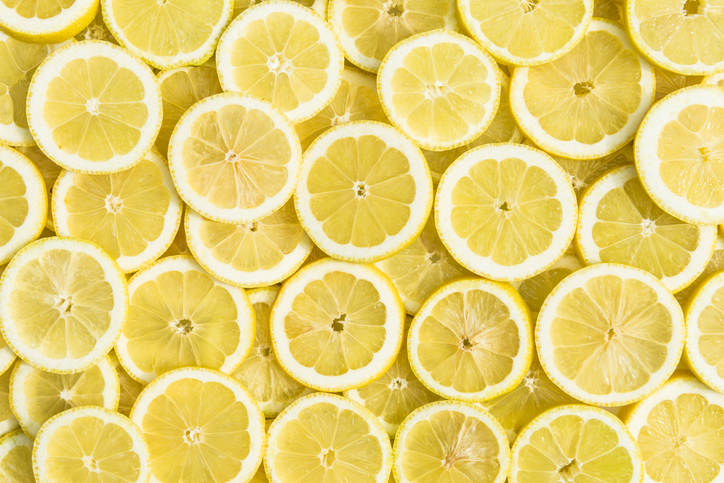Is lemon good for a sore throat?

Is lemon good for a sore throat?
Lemon is often one of the first remedies recommended to soothe a sore throat – incorporated into various medicinal products as well as homemade treatments. Whether combined with honey and hot water, or infused into cold water, lemon seems to be a popular choice for many – but does it really work?
Does lemon help a sore throat?
The short answer is yes. Regardless of how you consume it, lemon can help to ease the pain of a sore throat – and there are many other health benefits of lemons, too. But how exactly do lemons soothe a sore throat?
One key factor in lemons’ powers of soothing is their high levels of citric acid. Citric acid is present in all citrus fruits such as grapefruits, oranges and pineapple, but the highest amounts of citric acid can be found in lemons and limes. Eating or drinking citric acid lowers the pH of your mouth – which can help to kill off pathogens that might be causing your sore throat[1].
Additionally, the citric acid may also help to break up mucus by encouraging your coughing reflex[2]. When you have a sore throat it can often become irritated by thick mucus, making the pain worse. By breaking up the mucus, lemon can help to ease that pain and inflammation and get you feeling better quicker.
Lemons are also high in ascorbic acid or vitamin C, which has proven effects when it comes to fighting off infections[3]. Vitamin C acts as a boost to the immune system, which can help you to get rid of an infection causing your sore throat. By removing the cause, your sore throat should go away.
As well as helping to ease a sore throat, these factors also mean that lemons can help to prevent you ending up with a sore throat in the first place. Win-win!
How to use lemons to help your sore throat
If you’re looking to make the most of lemons’ natural health benefits, you’re in luck – there are lots of ways to use lemon as an at-home remedy for sore throats and coughs. Any recipe or mixture that contains lemon is likely to help with a sore throat, but here are our top three recommendations.
Use a lemon throat spray
Using a medicinal remedy such as Ultra Chloraseptic’s soothing Honey and Lemon throat spray is an excellent way to ease your sore throat with a pharmacist-approved treatment. Throat sprays are ideal because they usually come in small bottles, making them portable – so if you feel a sore throat coming on while you’re out and about, you won’t be stuck with the pain.
Drink chilled lemon water
Sore throats often come with inflammation that can make you feel hot and bothered and stop you getting on with your daily life. Not only can lemon water help to relieve sore throats with hydration and lemons’ natural soothing properties, but it can also help to keep you cool when you chill it beforehand. Chilled lemon water is also a great beverage for the summer!
To make this drink, just mix lemon juice with water to taste, and leave it in the fridge to chill. If you want it to chill extra quickly, put it in a bottle, wrap the bottle in a damp paper towel, and pop it in the freezer for five to 10 minutes. Don’t leave it too long, though – you might end up with a big ice lolly!
Make a honey and lemon tea
If you often get sore throats in winter, you might feel like a cold drink will only give you the chills. Fortunately, you can also mix lemon juice with honey and boiling water to create a soothing honey and lemon tea that’ll warm you up and help to fight your sore throat. Be careful not to drink it while it’s too hot, though – the last thing you want is to burn your mouth!
Top tip! You can make this hot drink using lemon squash instead of lemon juice. Just add your normal amount of squash to the bottom of your mug, stir in a spoon or two of honey, fill it up with hot water and enjoy.
Resources:
[1] https://www.sciencedirect.com/science/article/pii/S2590207520300010#sec3
[2] Schmidt, D et al. “Citric acid-induced cough thresholds in normal subjects, patients with bronchial asthma, and smokers.” European journal of medical research vol. 2,9 (1997): 384-8. https://pubmed.ncbi.nlm.nih.gov/9300935/
[3] Nahas, Richard, and Agneta Balla. “Complementary and alternative medicine for prevention and treatment of the common cold.” Canadian family physician Medecin de famille canadien vol. 57,1 (2011): 31-6. https://pubmed.ncbi.nlm.nih.gov/21322286/

